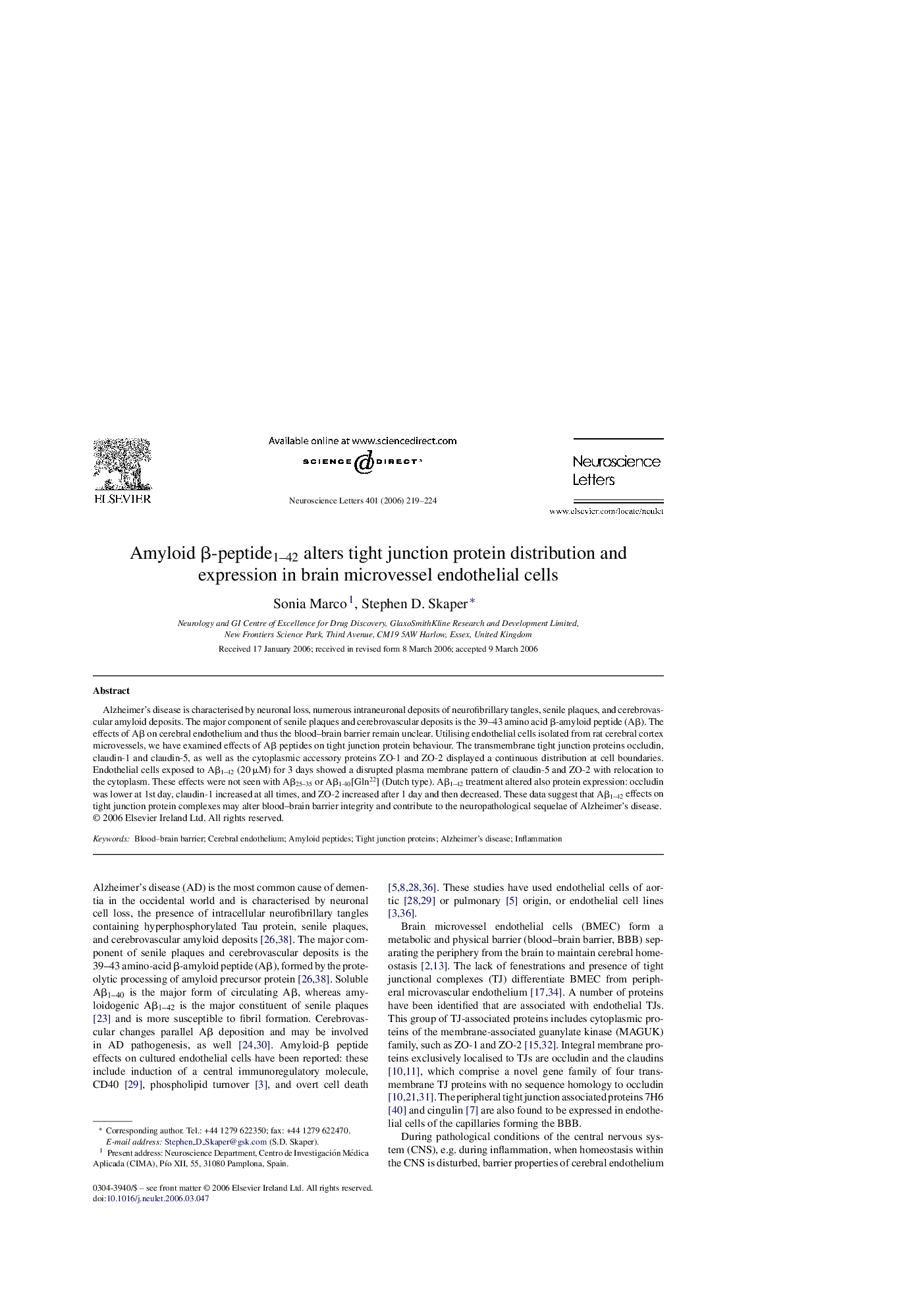| Article ID | Journal | Published Year | Pages | File Type |
|---|---|---|---|---|
| 4350435 | Neuroscience Letters | 2006 | 6 Pages |
Abstract
Alzheimer's disease is characterised by neuronal loss, numerous intraneuronal deposits of neurofibrillary tangles, senile plaques, and cerebrovascular amyloid deposits. The major component of senile plaques and cerebrovascular deposits is the 39-43 amino acid β-amyloid peptide (Aβ). The effects of Aβ on cerebral endothelium and thus the blood-brain barrier remain unclear. Utilising endothelial cells isolated from rat cerebral cortex microvessels, we have examined effects of Aβ peptides on tight junction protein behaviour. The transmembrane tight junction proteins occludin, claudin-1 and claudin-5, as well as the cytoplasmic accessory proteins ZO-1 and ZO-2 displayed a continuous distribution at cell boundaries. Endothelial cells exposed to Aβ1-42 (20 μM) for 3 days showed a disrupted plasma membrane pattern of claudin-5 and ZO-2 with relocation to the cytoplasm. These effects were not seen with Aβ25-35 or Aβ1-40[Gln22] (Dutch type). Aβ1-42 treatment altered also protein expression: occludin was lower at 1st day, claudin-1 increased at all times, and ZO-2 increased after 1 day and then decreased. These data suggest that Aβ1-42 effects on tight junction protein complexes may alter blood-brain barrier integrity and contribute to the neuropathological sequelae of Alzheimer's disease.
Keywords
Related Topics
Life Sciences
Neuroscience
Neuroscience (General)
Authors
Sonia Marco, Stephen D. Skaper,
